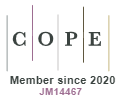Tourism And Sustainability In Conservation Units: A Study On Employment And Income Alternatives In The Area Of Environmental Protection Of The Mamanguape River Bar
DOI:
https://doi.org/10.5585/geas.v7i1.552Keywords:
Tourism, Sustainability, Conservation units, Employment and IncomeAbstract
The Environmental Protection Areas - APA's, represent one of the categories of Conservation Units - UC, established in Brazil, as a sustainable use. The objective of this study was to analyze the employment and income alternatives near the Barra do Rio Mamanguape-PB. In fact, we tried to know the main socioeconomic activities developed in this community, to understand the conflicts between APA management and the population, as well as to analyze the possibility of sustainable viability of their socioeconomic activities. Configuring as a descriptive qualitative research, the data collection consisted of the field observations in APA visits, an interview with the manager of the CU and through researches in scientific works carried out in the place. The findings of this study reveal that there are no defined areas for agriculture; fishing has several restrictions; the shrimp farming activity has not been developed in a sustainable way and many indigenous villages have practiced it, because they have their own legislation that is in opposition to environmental legislation. It was also noticed that the current APA management sees in ecotourism and in the implementation of a home-based housing project a sustainable alternative to improve the quality of life of the local community, however, it is necessary to empower the community to better understand the practice of ecotourism and also to develop local entrepreneurship.









